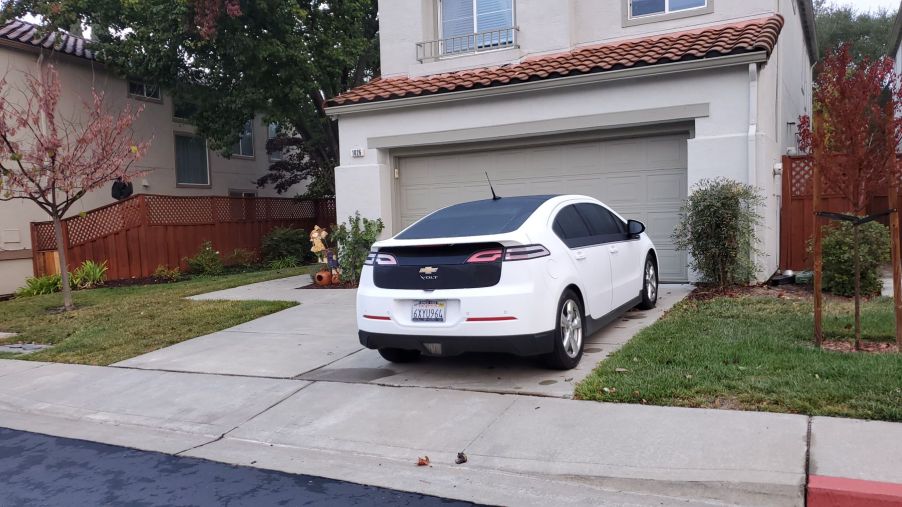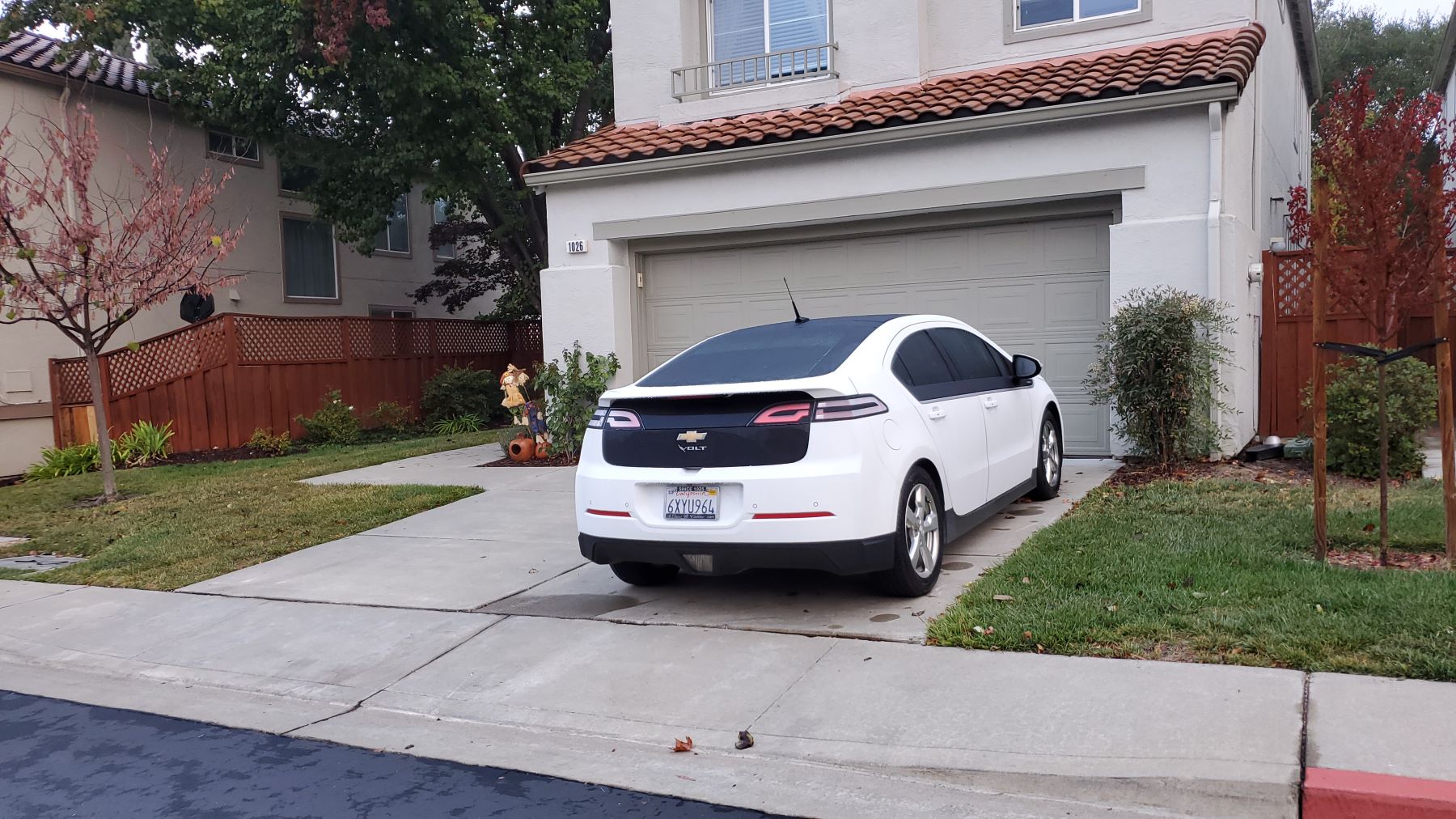
Is Leaving Your Car Running in a Closed Garage Dangerous if It’s an EV?
Gas-powered vehicles create dangerous emissions and have caused the deaths of drivers who kept them running in a closed garage. Due to carbon monoxide poisoning, some of the deaths were purposeful, while others were accidental. The dangers of gas-powered (or hybrid) vehicles are well known, but does an electric vehicle (EV) pose the same risks if an owner leaves it running in a closed garage?
The dangers of carbon monoxide poisoning in a garage

Running a gas-powered vehicle in an enclosed space, like a garage, can cause a buildup of carbon monoxide gas, which can be deadly, says the Eric Von Schledorn Auto Group. Illness and death can sometimes happen quickly, says Quora.
Today’s newer cars produce much less carbon monoxide than older cars, says CBC News. However, if a vehicle is parked in a garage or idling outside with snow blocking the tailpipe, carbon monoxide can begin to build up in the car’s interior or an attached home.
If a person breathes in carbon monoxide, it can build up in the bloodstream and replace the oxygen in the red blood cells, explains the Mayo Clinic. Carbon monoxide poisoning can cause tissue damage, nausea or vomiting, dizziness, blurry vision, loss of consciousness, headaches, weakness, shortness of breath, confusion, brain damage, heart damage, miscarriage, or death. People most at risk of carbon monoxide poisoning are unborn babies, children, the elderly, and people with heart disease, anemia, or breathing problems.
In addition to gas-powered engines, carbon monoxide can also be produced by burning wood, propane, charcoal, and other fuels or by running a generator. It can cause health problems if there isn’t good ventilation. The gas is colorless, odorless, and tasteless.
EVs do not produce emissions
While running a gas-powered or hybrid vehicle in an enclosed space is very dangerous, running an EV is far less dangerous. EVs do not emit harmful emissions and can be left running in a garage. The Eric Von Schledorn Auto Group says it would even be safe to park an EV inside a house. The lack of harmful gases is one of the big appeals of EVs for anyone who wants to eliminate emissions, points out Cazoo.
It is important to note that EVs do get hotter when in use, like other electrical appliances. EVs still need to be in a ventilated space since it’s essential to let the generated heat out of the area. Therefore, this type of vehicle isn’t risk-free, and EVs sometimes catch on fire, says Air Quality News. In fact, these fires sometimes reignite hours (or even weeks) after being extinguished. However, air pollution causes up to seven million deaths annually, while EV fires cause very few.
The advantages of EVs over gas-powered vehicles
No dangerous carbon monoxide is just one of the appealing ways EVs have an advantage over gas-powered cars. Since EVs don’t produce any emissions, they also don’t pollute when they’re being operated. Other significant factors include their low running cost, quiet electric motors, and speedy acceleration capabilities. EVs also have lower maintenance costs since they have fewer moving parts. An electric vehicle is an excellent car for shorter trips and is ideal for people who drive less than 100 miles per day, says Cazoo.
Not everything is perfect with EVs, though. Electric cars do often cost more to purchase than gas- or diesel-powered cars. It also takes a lot more time to charge an electric vehicle than it does to fill up a gas-powered car with fuel.
Carbon monoxide is hazardous to human health, so homes should have detectors, and gas-powered cars should not be run inside closed garages. EVs, while not perfect, do not pose this risk to people.


